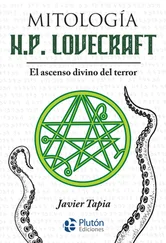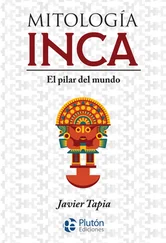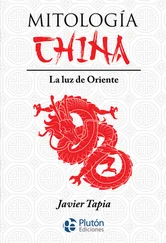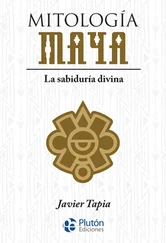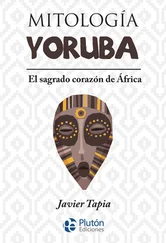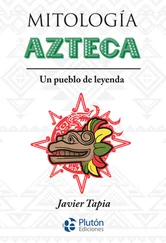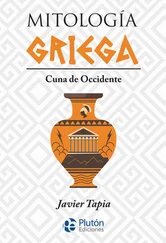Her story followed the traditional lines better than mine. From an early age Carmen had felt that she had been born into the wrong body. In the dressing room one day, she told me in her South Bronx voice: “I was like, yo! Who put this dick on me? I never asked for no dick.” It was still there, however, for the time being. It was what the men came to see. Zora, given to analytical thought, felt that Carmen’s admirers were motivated by latent homosexuality. But Carmen resisted this notion. “My boyfriends are all straight. They want a woman .”
“Obviously not,” said Zora.
“Soon as I save my money I’m having my bottom done. Then we’ll see. I’ll be more of a woman than you, Z.”
“Fine with me,” replied Zora. “I don’t want to be anything in particular.”
Zora had Androgen Insensitivity. Her body was immune to male hormones. Though XY like me, she had developed along female lines. But Zora had done it far better than I had. Aside from being blond, she was shapely and full-lipped. Her prominent cheekbones divided her face in Arctic planes. When Zora spoke you were aware of the skin stretching over these cheekbones and hollowing out between her jaws, the tight mask it made, banshee-like, with her blue eyes piercing through above. And then there was her figure, the milkmaid breasts, the swim champ stomach, the legs of a sprinter or a Martha Graham dancer. Even unclothed, Zora appeared to be all woman. There was no visible sign that she possessed neither womb nor ovaries. Androgen Insensitivity Syndrome created the perfect woman, Zora told me. A number of top fashion models had it. “How many chicks are six two, skinny, but with big boobs? Not many. That’s normal for someone like me.”
Beautiful or not, Zora didn’t want to be a woman. She preferred to identify herself as a hermaphrodite. She was the first one I met. The first person like me. Even back in 1974 she was using the term “intersexual,” which was rare then. Stonewall was only five years in the past. The Gay Rights Movement was under way. It was paving a path for all the identity struggles that followed, including ours. The Intersex Society of North America wouldn’t be founded until 1993, however. So I think of Zora Khyber as an early pioneer, a sort of John the Baptist crying in the wilderness. Writ large, that wilderness was America, even the globe itself, but more specifically it was the redwood bungalow Zora lived in in Noe Valley and where I was now living, too. After Bob Presto had satisfied himself on the details of my manufacture, he had called Zora and arranged for me to stay with her. Zora took in strays like me. It was part of her calling. The fog of San Francisco provided cover for hermaphrodites, too. It’s no surprise that ISNA was founded in San Francisco and not somewhere else. Zora was part of all this at a very disorganized time. Before movements emerge there are centers of energy, and Zora was one of these. Mainly, her politics consisted of studying and writing. And, during the months I lived with her, in educating me, in bringing me out of what she saw as my great midwestern darkness.
“You don’t have to work for Bob if you don’t want,” she told me. “I’m going to quit soon anyway. This is just temporary.”
“I need the money. They stole all my money.”
“What about your parents?”
“I don’t want to ask them,” I said. I looked down and admitted, “I can’t call them.”
“What happened, Cal? If you don’t mind me asking. What are you doing here?”
“They took me to this doctor in New York. He wanted me to have an operation.”
“So you ran away.”
I nodded.
“Consider yourself lucky. I didn’t know until I was twenty.”
All this happened on my first day in Zora’s house. I hadn’t started working at the club yet. My bruises had to heal first. I wasn’t surprised to be where I was. When you travel like I did, vague about destination and with an open-ended itinerary, a holy-seeming openness takes over your character. It’s the reason the first philosophers were peripatetic. Christ, too. I see myself that first day, sitting cross-legged on a batik floor pillow, drinking green tea out of a fired raku cup, and looking up at Zora with my big, hopeful, curious, attentive eyes. With my hair short, my eyes looked even bigger now, more than ever the eyes of someone in a Byzantine icon, one of those figures ascending the ladder to heaven, upward-gazing, while his fellows fall to the fiery demons below. After all my troubles, wasn’t it my right to expect some reward in the form of knowledge or revelation? In Zora’s rice-screen house, with misty light coming in at the windows, I was like a blank canvas waiting to be filled with what she told me.
“There have been hermaphrodites around forever, Cal. Forever. Plato said that the original human being was a hermaphrodite. Did you know that? The original person was two halves, one male, one female. Then these got separated. That’s why everybody’s always searching for their other half. Except for us. We’ve got both halves already.”
I didn’t say anything about the Object.
“Okay, in some cultures we’re considered freaks,” she went on. But in others it’s just the opposite. The Navajo have a category of person they call a berdache. What a berdache is, basically, is someone who adopts a gender other than their biological one. Remember, Cal. Sex is biological. Gender is cultural. The Navajo understand this. If a person wants to switch her gender, they let her. And they don’t denigrate that person—they honor her. The berdaches are the shamans of the tribe. They’re the healers, the great weavers, the artists.”
I wasn’t the only one! Listening to Zora, that was mainly what hit home with me. I knew right then that I had to stay in San Francisco for a while. Fate or luck had brought me here and I had to take from it what I needed. It didn’t matter what I might be compelled to do to make money. I just wanted to stay with Zora, to learn from her, and to be less alone in the world. I was already stepping through the charmed door of those druggy, celebratory, youthful days. By that first afternoon the soreness in my ribs was already lessening. Even the air seemed on fire, subtly aflame with energy as it does when you are young, when the synapses are firing wildly and death is far away.
Zora was writing a book. She claimed it was going to be published by a small press in Berkeley. She showed me the publisher’s catalogue. The selections were eclectic, books on Buddhism, on the mystery cult of Mithras, even a strange book (a hybrid itself) mixing genetics, cellular biology, and Hindu mysticism. What Zora was working on would certainly have fit this list. But I was never clear how actual her publishing plans were. In the years since, I’ve looked out for Zora’s book, which was called The Sacred Hermaphrodite. I’ve never found it. If she never finished it, it wasn’t a question of ability. I read most of the book myself. At my age then, I wasn’t much of a judge of literary or academic quality, but Zora’s learning was real. She had gone into her subject and had much of it by heart. Her bookshelves were full of anthropology texts and works by French structuralists and deconstructionists. She wrote nearly every day. She spread her papers and books out on her desk and took notes and typed.
“I’ve got one question,” I asked Zora one day. “Why did you ever tell anybody?”
“What do you mean?”
“Look at you. No one would ever know.”
“I want people to know, Cal.”
“How come?”
Zora folded her long legs under herself. With her fairy’s eyes, paisley-shaped, blue and glacial looking into mine, she said, “Because we’re what’s next.”
“Once upon a time in ancient Greece, there was an enchanted pool. This pool was sacred to Salmacis, the water nymph. And one day Hermaphroditus, a beautiful boy, went swimming there.”
Читать дальше
Конец ознакомительного отрывка
Купить книгу


